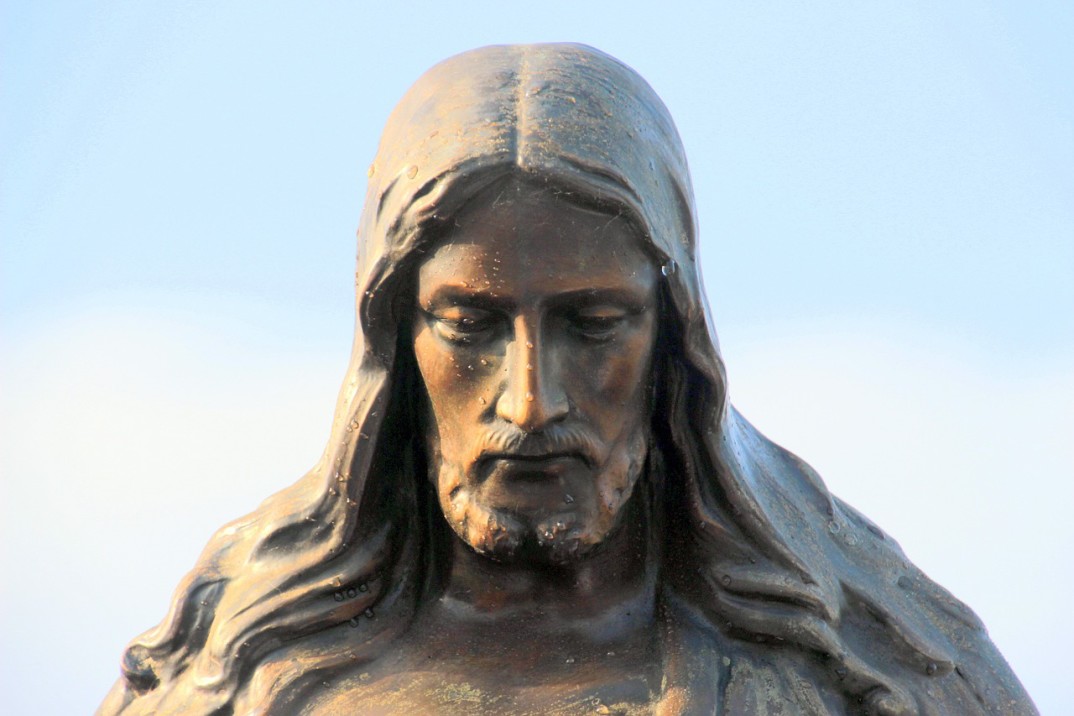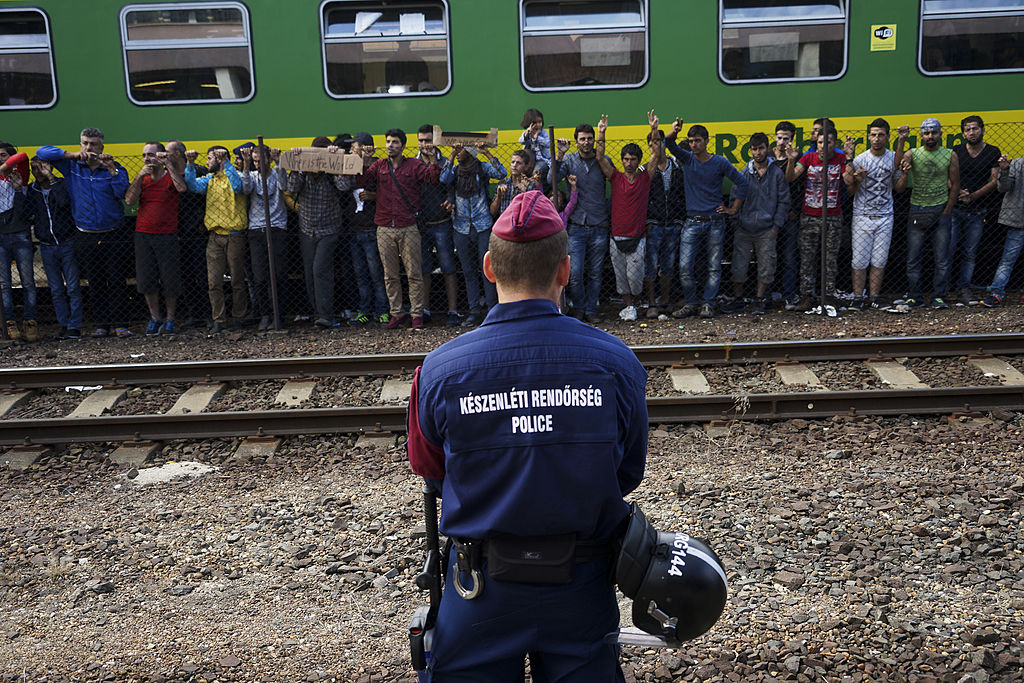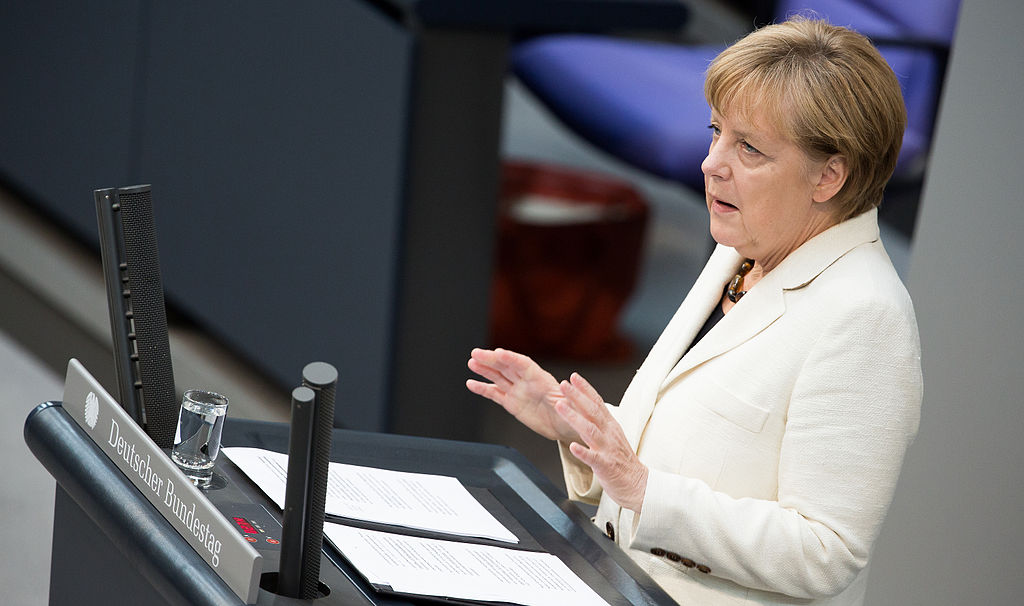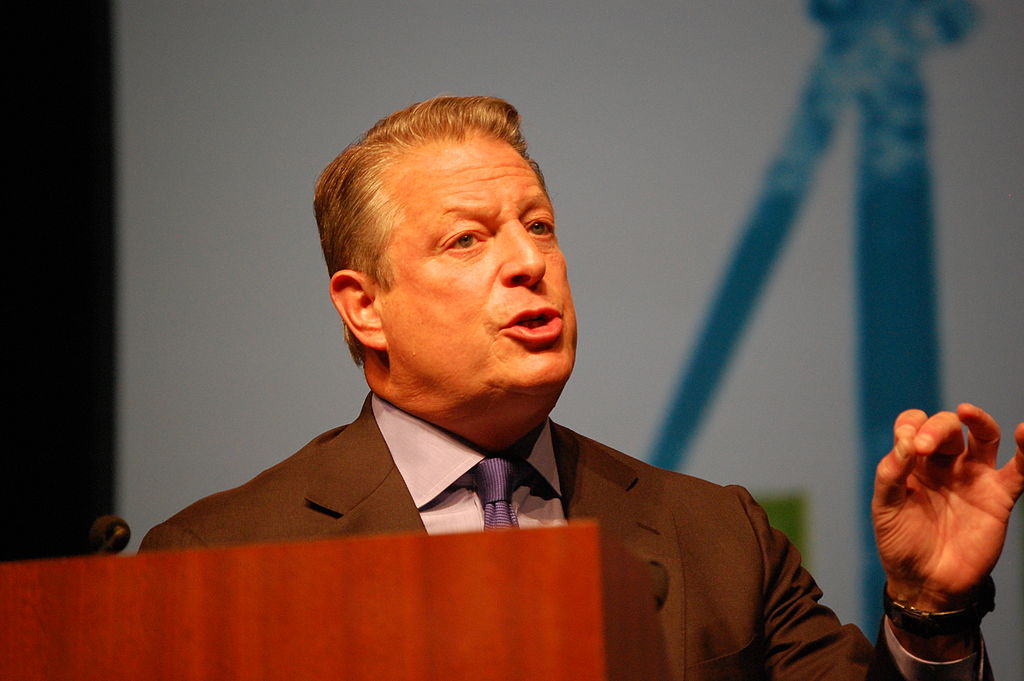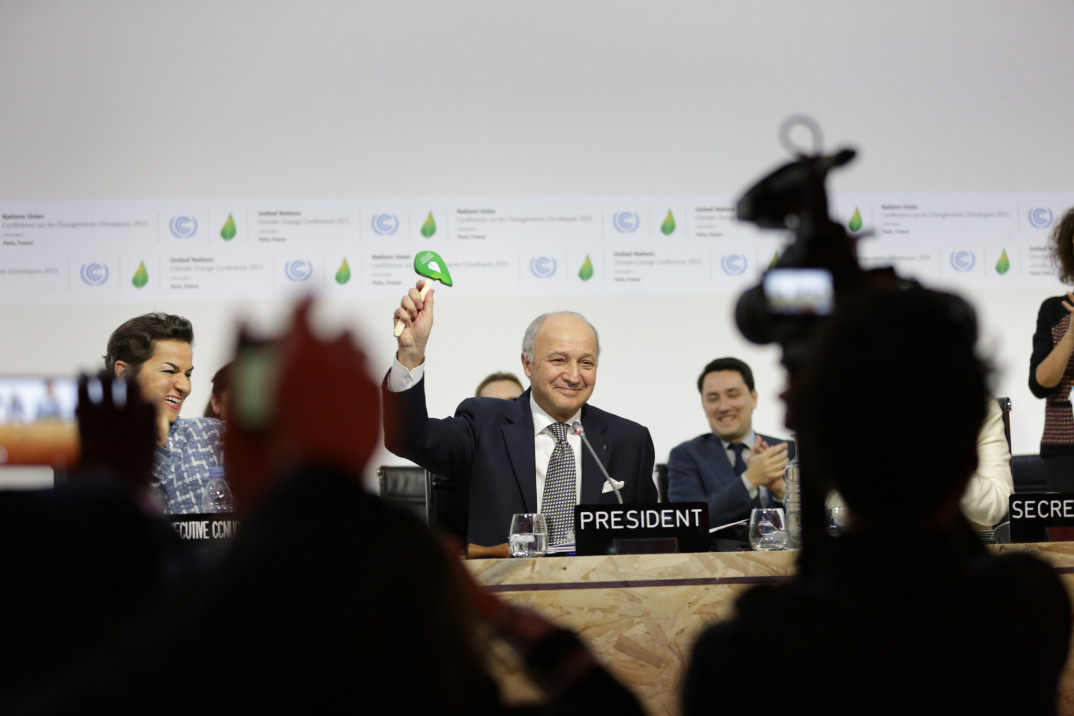Homeopathy, the medical philosophy that “like cures like,” is big business. According to the latest estimates from the Centers for Disease Control, $2.9 billion were spent in out-of-pocket costs by adults in the United States for homeopathic medicine in 2007. The medical philosophy of homeopathy, developed in Germany over 200 years ago, posits that any substance that produces certain symptoms in a healthy person can also be used to cure those symptoms in a sick person. Homeopathic cures introduce one of these substances to cure a person of their symptoms.
The Gentrification of Hip-Hop
Hip-hop music began in the 1980s, and was primarily a means for African American communities to express commentary and frustration related to politics, discrimination, and common struggles often related to race relations. Crucially, music was being used to give voice to a people that has traditionally been suppressed or discounted because of the effects of systemic racism in the American political institution. One of the most significant groups to pioneer this genre was Public Enemy, whose music focused largely on sociopolitical commentary.
Seeds of Doubt: The Under-Regulation of Televangelism
What if I told you that you’d have a miracle at this time tomorrow if you shouted “Fear not!” three times, counted down from ten and then called and sent money to a television network?
These were the exact instructions of one of the ministers during this year’s Praise-A-Thon, one of the Trinity Broadcasting Network’s many fundraising efforts that elicits donations across the country annually; the television network is one of the leaders in televised ministry and has provided an outlet for recorded and live services. Stakes are usually much higher, however, for contemporary televangelists; though their heyday has undoubtedly passed, these ministers still make millions in their pursuit of televised salvation.
Continue reading “Seeds of Doubt: The Under-Regulation of Televangelism”
Classical Music and the Cost of Perfection
Growing up, I always knew I wanted to be a singer. I was that child who always told her friends and family that she was going to be on American Idol when she turned sixteen, but was actually talent-less, which usually fostered an encouraging pat on the back and an “oh, that’s nice, dear,” from amused adults. Thanks to several outstanding music educators, I fortunately grew into my voice in high school, and decided I wanted to pursue a career in opera.
Continue reading “Classical Music and the Cost of Perfection”
Masculinity Across Sports
When conjuring up the perfect image of masculinity in your mind, most people imagine the typical high school jock. He plays football, basketball, ice hockey, or a similar hypermasculine activity. Rarely does a runner, swimmer, or this sort of “second tier” of masculinity in sports arise. By assigning masculinized predispositions to certain sports, could the conversation surrounding masculinity become skewed from a young age? If so, this would certainly create a problematic discourse around certain sports and limit a conversation for LGBTQ+ communities to have a voice within this realm.
Really, What Would Jesus Do?
A visitor from outer space would probably believe that Christmas celebrates the deeds of a fat man coming down a chimney to give gifts to children. But, not long ago, it was about the birth of a 1st Century Jew who, allegedly, claimed to be God. Continue reading “Really, What Would Jesus Do?”
To Whose Benefit is Aversion Therapy?
It is doubtful that any individual ever grows up expecting to have a child with any type of physical or mental disability. No one plans their life thinking that one day they will have to care for a person with special needs. Parenting is a challenge as it is, but learning to parent a child with disabilities is infinitely more difficult because of this lack of preparedness.
Should Parents Lie to Their Children About Santa Claus?
As the parent of an inquisitive 2½ year old, I currently find myself fumbling to explain Santa Claus to him, of whom he is now quite aware. Should I emphasize that he is a storybook character and not a real person? Would he even know what the difference between real and make-believe is yet? Ultimately, I find myself confronted by the perennial parenting question that divides many a household: Should we lie to our kids about Santa Claus?
My own parents always dutifully marked some Christmas presents as if they were from Santa Claus, even well after we kids were past the stage of believing in that jolly old elf. I do not personally feel damaged by my parents sustaining the myth of Father Christmas, but a recent essay in Lancet Psychiatry warns otherwise. Kathy McKay, a clinical psychologist at the University of New England, Australia and co-author claims: “The Santa myth is such an involved lie, such a long-lasting one, between parents and children, that if a relationship is vulnerable, this may be the final straw. If parents can lie so convincingly and over such a long time, what else can they lie about?”
Continue reading “Should Parents Lie to Their Children About Santa Claus?”
Demographics, Refugees, and Immigration: What of the Expanding Moral Circle?
Anxieties over changing demographics, immigration, and refugees have been a key theme in Western politics over the past couple of years. A central flashpoint in the political debates leading up to the Brexit vote was a controversial poster from the “Leave” Campaign, depicting a line of Syrian refugees. In the United States, reports of racist taunting and vandalism have increased since the recent election. France will vote in presidential elections in 2017, and the National Front’s candidate Marine Le Pen is projected to have a strong showing. The National Front has also been associated primarily with its opposition to immigration, specifically immigration from Islamic countries. More generally, political sentiments that reject multiculturalism and cosmopolitanism, in favor of nationalism and isolationism, have grown in popularity in both the United States and Western Europe.
Continue reading “Demographics, Refugees, and Immigration: What of the Expanding Moral Circle?”
Identity and Pluralism in Merkel’s Call to Ban the Veil
This article has a set of discussion questions tailored for classroom use. Click here to download them. To see a full list of articles with discussion questions and other resources, visit our “Educational Resources” page.
Germany would be far from the first country to ban the veil. France was the first Western European country to do so in 2011, with the administration using the reasoning that the veil is a vehicle of oppression of women as justification for the fines imposed on women who leave their house with their faces covered.
Despite the fact that a number of countries in Europe, including the Netherlands, Italy, Belgium, and Switzerland, have some sort of legal restriction on the wearing of headscarves, this is the first time the prospect of a federal ban on the full veil in Germany has been raised (Though half of Germany’s states have banned teachers from wearing headscarves after a Constitutional Court case in 2003). That leadership in Germany have joined the movement against Muslim headscarves speaks to a shift in approach to what has long been a thorny question. How can a nation balance a liberal respect for pluralism and the autonomy of its citizens while at the same time preserve a national identity?
Merkel said in her speech defending the idea of the ban: “The full veil is not appropriate here, it should be forbidden wherever that is legally possible. It does not belong to us.” Her move towards banning the veil has widely been taken as a tactic to mitigate the negative response to her allowing hundreds of thousands of migrants to enter Germany in the wake of the migrant crises of recent years. What it means to be German is implicated in the discussion, and the public display of practices that are interpreted to be “foreign” are less than welcome in the current climate. Thus, the proposal of a ban on headscarves will likely help Merkel gain support of constituents who have been less than pleased with her handling of the migrant crisis and its effects on the economy and other aspects of German life.
Bans like these bring out the tension between the formal and substantive values underlying modern liberal societies. On the one hand, there is a commitment to allowing people to live as they wish: the value of protecting civil liberties and individual autonomy, which is a formal value (it does not implicate any particular value systems or commitments to promote). On the other hand, there is a commitment to promoting something resembling a national identity, values which would be German, or French, or British, or American, which would be substantive.
This formal commitment we can call a commitment to respect autonomy, or the value of pluralism. This is the value in respecting an individual’s autonomy in shaping her life according to her values, especially in practices that are in significant areas of life. Practices and choices regarding child-rearing, partner selection, educational strategies, meals and dietary customs, burial and worship, etc. shape the meaning and significance of our lives. Crucially, at the root of this commitment is the notion that there are multiple reasonable value systems that could shape a good life, and therefore in order to have a society that respects all individuals, it must acknowledge that they could arrive at different ideas about how to live. Given a full set of human competences, well-informed people can disagree as to what will constitute a life well-lived.
It can be important to one family to raise children in authoritarian, achievement-focused manner. In another household, particular eating practices could be highly significant. Expressions of religious belief and worship vary from diet to clothing to structural family choices. These practices are ways that the world and life makes sense to us and is meaningful, and in the last few hundred years especially, societies have trended towards more pluralist approaches to governance where citizens can hold a variety of value systems and fully participate in the government and society.
France has embraced a further value: a deep separation of church and state, in other words, a commitment to secularism. Public spaces are meant to be free from “conspicuous” displays of religious expression. For instance, displays of religious expression in public schools have been banned since 2004, and this restriction has been met with wide public support: BBC reports, “Most of the population – including most Muslims – agree with the government when it describes the face-covering veil as an affront to society’s values.” The justification for these restrictions is largely framed as an appeal to what it means to be “French,” and the substantive values that come with citizenship. This is a move away from pluralism, a move towards the promotion of particular nationalist values.
The commitments here are distinct from a commitment to pluralism and a respect for autonomy, for expressions of differing values (specifically, values that arise from religious commitment) in certain public places are outlawed. It is telling that along with a fine, the sanction for wearing the full veil includes taking a class on citizenship. Despite being the country with the largest Muslim minority in Western Europe, in order to be a proper citizen of France, expressing this religion in particular ways in particular places is legally prohibited.
The value of pluralism is underwritten by the notion that there are multiple ways of living that may be equally valid, or at least that are not inherently wrong. With a commitment to secularism, France is avoiding saying that these practices are wrong, and instead saying they are not appropriate for the public sphere (though President Sarkozy, who was in power and behind the ban on full veils, cited the oppressive nature of the veil at the time). Attempting to outline appropriate behavior for the public sphere, while maintaining that individuals can live according to their values in private is giving priority to the commitment of secularism over pluralism, which is relegated to a particular sphere of life.
A commitment to secularism could be underwriting the current move in Germany, with the foreign minister’s language citing the veil’s inherent conflict with Germany’s “open society”, and Merkel claiming that the veil “doesn’t belong to us.” The foreign minister seems to attempt to appeal to formal values of German society – values that wouldn’t favor one religious or secular value system over another – when he mentions the importance of communication: “Showing the face is a constituent element for our communication, the way we live, our social cohesion. That is why we call on everyone to show their face.” This would suggest that the issue isn’t with the expression of religious faith that is foreign to Germany or an oppression inherent in wearing the garment, but rather that Germans have a formal commitment that this specific instance of religious expression is in conflict with. If someone is covering their face, the suggestion is that communication is undermined. (Our ability to successfully communicate via a plethora of digital media would seem to be a counterexample to this appeal to the necessity of seeing the face of our interlocutor.)
The restriction of public expression of personal adherence to a value system has been justified on a variety of grounds recently in Western Europe. Whatever is taken to justify it, the case must be weighed against the nation’s commitment to pluralism, and the extent to which the nation wishes to preserve that value as part of its national identity.
The Nutritional Ethics of Hidden Vegetables
As a child, I distinctly remember sitting at my dining room table for hours and hours wishing for the tiny amount of broccoli on my almost empty plate to disappear so I could be excused from the table. If it was up to my picky self, I would have grilled cheese or pizza for every single meal, completely forgoing any sufficiently nutritious food. As for many parents, forcing me to eat fruits and vegetables became a consistent struggle throughout my entire childhood. Covering broccoli with cheese or placing vegetables in a batch of buttered noodles were just a few tactics my parents implemented in order for me to have a balanced diet.
Continue reading “The Nutritional Ethics of Hidden Vegetables”
Balancing Religious Freedom and Security in Germany’s Full-Veil Ban
Although nations have been dealing with international Islamic terrorism since the 1960s, Islamism’s threat has expanded over the last half-century. It has seeped out of immediate regional disputes in the Middle East and found its way directly into Western territory with the 1993 bombing of the World Trade Centers and the subsequent attacks on the World Trade Center and the Pentagon in 2001.
Continue reading “Balancing Religious Freedom and Security in Germany’s Full-Veil Ban”
Life, Death, and Cryonics
Cryogenics, also known as cryonics, is a form of preservation involving the storing and preservation of a body at very low temperatures in hopes of one day reviving and repairing the body. Although to date no humans have been revived after freezing, some scientists think they are coming closer to making revivement though cryogenics a real possibility. Recent reports of a terminally ill British teen being frozen upon her death have brought cryogenics and the ethical debates surrounding the topic back into the news.
The 21st Century Cures Act and Prioritizing Diseases
The 21st Century Cures Act represents the kind of bipartisan diligence and compromise from a bygone era. Passed with overwhelming consensus by the House on November 30th 392-27, this mammoth health spending bill has brought two parties together that have been polarized during the recent presidential campaign. This over 1,000-page bill combines the efforts of millions in lobbying spending, Republican values of deregulation and Democratic values of expanding health care spending and including individual patient advocacy in drug testing regimen. Who are the winners and losers of the 21st Century Cures Act, and are the controversial aspects of this monumental legislation?
Continue reading “The 21st Century Cures Act and Prioritizing Diseases”
Death Row Dilemmas: The Sentencing and Execution of Ronald Smith Jr.
In the early hours of the morning, on November 8th, 1994, Casey Wilson was working his shift at a Circle K in Huntsville, Alabama. That morning, 23-year-old Ronald Bert Smith Jr. came into the station with the intention to rob it. He pistol-whipped Wilson and forced him to the convenience store restroom where he shot him. Wilson died of his wounds. To avoid detection and identification, Smith removed the store’s surveillance videotape from that night and brought it with him.
Continue reading “Death Row Dilemmas: The Sentencing and Execution of Ronald Smith Jr.”
Will History Absolve Fidel Castro?
Fidel Castro is dead. During his trial, in 1953, he pronounced his famous words: “History will absolve me.” Whereas President-elect Donald Trump has emphatically condemned him, President Obama has been more cautious, and has proclaimed that, indeed, the jury is still out, and that History will judge Fidel Castro’s enormous impact.
On Forcing Women to Share Custody with their Rapist
As the intersection of religious, political, medical, feminist, and moral debate, abortion is one of the most divisive ethical issues in our nation. Pro-choice supporters argue that women have the right to determine the fates of their own bodies whereas pro-life activists consider abortion to be murder. An issue that looms around the discussion of abortion is the circumstance of conception from rape. Pro-life individuals may shy away from the issue or even admit rape as an exception. However, websites like Students for Life advise their readers to stand firm in opposition of abortion, questioning rhetorically, “The perpetrator must be punished to the fullest extent of the law, but does the helpless child, who is guilty of no crime, deserve death?” Claiming that abortion perpetuates the “pattern of violence and victim-hood,” Students for Life suggests that the rape victim bears the responsibility to break the cycle of violence. However, does the cycle really end for the women of the estimated 17,000 to 32,000 rape-related pregnancies who choose to keep their children? Women are not only punished for their abortions; in the United States, women may be forced to share their children’s custody with their rapists.
Continue reading “On Forcing Women to Share Custody with their Rapist”
Evaluating Climate Change’s Post-Election Importance
Former Vice President Al Gore is making headlines after his meeting with President-elect Donald Trump on December 5th. After the meeting, he sat for an interview with the Guardian about their conversation and the election in general. In the interview, Gore stated that, for the sake of the environment, we do not have “time to despair” over the results of the election and that “despair is just another form of denial.” Gore is known for his environmental activism, most specifically his documentary, “An Inconvenient Truth,” which highlighted the urgency of climate change in 2006. Gore even won the 2007 Nobel Peace Prize for his efforts to combat climate change. Though many environmentalists might agree with Gore, are his statements acceptable? Is it fair to compare grief from the election to denial? And is Gore failing to recognize the marginalized identities that are at stake as a result of the election?
Continue reading “Evaluating Climate Change’s Post-Election Importance”
Trump’s Russia and Putin’s America
President-elect Donald Trump’s comments on Russian President Vladimir Putin have been a hot topic of discussion for months now. Trump has praised the Russian president’s leadership skills, noting that a renewed US-Russian cooperative relationship would be beneficial to both countries and to the world, specifically when it came to fighting ISIS. A Russian hack on the Democratic National Committee that resulted in thousands of leaked internal e-mails may have also influenced the election in Trump’s favor, leading to questions about the Putin-Trump relationship and concerns over election ballot hacking. Now that Trump stands to assume the presidency in a little less than two months, many Americans wonder what our future relationship with Russia will be. In order to understand what may come in the future, it is important to understand the beginnings of the Russian Federation – and how the United States may have had something to do with Russia turning from the West in the early 1990s.
Fake News and the Future of Journalism
Oscar Martinez is an acclaimed Salvadoran journalist for El Faro, an online newspaper that dedicates itself to conducting investigative journalism in Central America, with a focus on issues like drug trafficking, corruption, immigration, and inequality. In a recent interview for El Pais, Martinez explains that the only reason he is a journalist is because “sé que sirve para mejorar la vida de algunas personas y para joder la vida de otras: poderosos, corruptos” (“ I know it serves to, both, improve the lives of some people and to ruin the lives of others: the powerful, the corrupt.”) Ascribing himself to further reflection, in the interview, Martinez distills journalism’s purpose as a “mechanism” to bring about change in society; however, he does raise a red flag: “El periodismo cambia las cosas a un ritmo completamente inmoral, completamente indecente. Pero no he descubierto otro mecanismo para incidir en la sociedad de la que soy parte que escribiendo” (“Journalism changes things at a completely immoral and indecent rate. But I haven’t found another way to incite the society that I am writing in to change”). Martinez’s work sheds light and lends a voice to the plight of millions of individuals, and it is important to acknowledge and admire the invaluable work that Martinez and his colleagues at El Faro do.
The Alt-Right and the Dangers of Political Self-Identification
Americans on both side of the aisle were inflamed after Richard Spencer’s racist, nationalist speech to his think tank, the National Policy Institute, seemed to mirror the rhetoric of fascism that shrouded Donald Trump’s campaign. Following the November 19th speech at NPI’s conference, Spencer’s supporters responded with Nazi salutes, and President-elect Trump disavowed this endorsement, but most notably, media coverage of the event gave undivided attention to Trump’s supporters on the “alt-right.”
Continue reading “The Alt-Right and the Dangers of Political Self-Identification”
Is the Paris Agreement Ethical?
As the COP22 (a conference where world leaders gather to discuss climate policies) took place in Marrakech a few weeks ago, environmentalists were optimistic about the enforcement of the Paris agreement: 195 countries are committing to keep global temperatures at two degrees above pre-industrial levels. Although some more radical environmentalist groups complain this deal is insufficient, it is widely announced by world leaders as a major breakthrough in the struggle against global warming.






